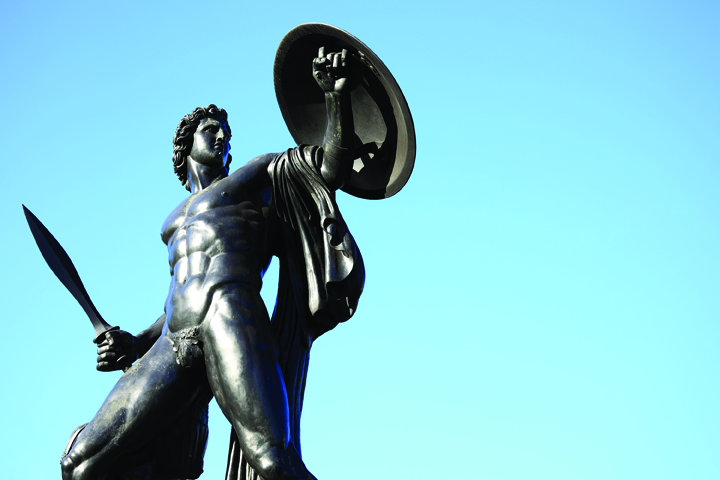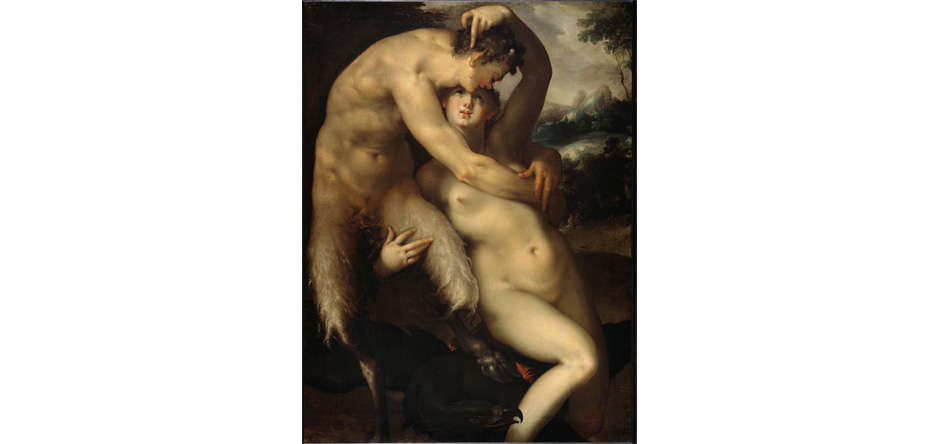The 2012 French Open men’s final was in the words of the superb sports/culture website Grantland “an absolute mess.”
It rained in Paris that June Sunday, and the players’ collective mood matched the spirit of the Symbolist poet Paul Verlaine: “Il pleure dans mon coeur comme il pleut sur la ville.” (“It rains in my heart as it rains in town.”)
Rafael Nadal, the perennial winner whose kvetching matches his clay-court capabilities, never let up on officials.
“You made us play in the rain and then you said we didn’t have to play in the rain. Make up your mind.”
Novak Djokovic, the perennial challenger, kept his lip zipped, for the more it rained and Rafa complained, the better he himself actually played. Until it was finally too much for Nole, who took his racket and proceeded to demolish the Perrier sign under his seat.
At least one observer was sympathetic.
“I can relate,” said John McEnroe, tennis bad boy-turned-NBC elder statesman.
So could many of us who are just a teensy, weensy bit passionate about everything we do. The passion spectrum has many colors – the crimson warmth of compassion, the jazzy black and blue heat of lust – all of which we’ll explore in this WAG’s Year of Passion. But then there’s the white-hot fury of anger, which gets a bad rap, perhaps deservedly so. Indeed, we could people Wikipedia with the lives that have been destroyed, the families, communities and cities decimated, because we had to – another poet here, Dylan Thomas – “rage, rage against the dying of the light.” Someday, some clever grad student at NYU is going to write a thesis on the literature of rejection – those men, and women, though mostly men, whose disproportionate rage at seeing a homeland humiliated (John Wilkes Booth, Adolf Hitler), a military career fizzle (Lee Harvey Oswald, Timothy McVeigh), a patrimony ridiculed (Osama bin Laden) led to megalomania and unfathomable evil.
But the literature of rejection is also about actual literature. Here the Western canon is populated with antiheroes – Lucifer in Milton’s “Paradise Lost,” Heathcliff in Emily Brontë’s “Wuthering Heights,” to name two – who could not “go gentle into that good night.”
Philip Roth alluded to as much as he revisited his seminal novel, “Portnoy’s Complaint,” in The New York Times’ Nov. 16th T magazine:
“Portnoy is as rich with ire as with lust,” he writes. “Who isn’t? Look at Robert Fagles’ translation of ‘The Iliad.’ What’s the first word? ‘Rage.’ That is how the whole of European literature begins: singing the virile rage of Achilles.”
The wrath of Achilles drives “The Iliad,” the 8th century B.C. epic by Homer (or a group of Homers) that centers on the turning point in the Trojan War. The poem begins with righteous anger. Achilles – the Greeks’ greatest warrior, son of the sea goddess Thetis and a king in his own right – rebukes the arrogant, incompetent Greek high commander Agamemnon for taking a temple priest’s daughter as a war prize and thus, showing impiety to the gods. Demonstrating who’s the boss, Agamemnon takes Achilles’ war prize.
This leads the warrior to sulk famously in his tent, strumming his lyre as his rage gathers into the eye of a psychological storm. But his sulking does not have the effect he intended. Sulking rarely does. With the tide of war turning against the Greeks, Achilles’ beloved kinsman Patroclus – often interpreted today as his lover – dons his armor and sets out to battle the Trojans, only to prove fatally that he’s no match for the Trojan prince Hector. Achilles’ rage now rains down on the Trojans. He slays Hector as they watch from their walled heights. Then piercing the heels of the body, Achilles ties it behind his chariot and drags it around the city walls, back to the Greek camp and around Patroclus’ tomb three times before leaving it face down in the dust.
But even then Achilles’ rage is not dissipated, and he holds the body as a war prize for the Greeks to abuse. It’s not until Hector’s father, King Priam, comes to beg for the release of his child’s remains that Achilles’ passion approaches compassion.
Anger, like any other quality, is neither here nor there. It’s the context that shapes its meaning. And Achilles fails to understand the context. Or rather he fails to give his anger its proper context.
He may be the greatest warrior. He may be on the side of the gods. But Agamemnon is his boss.
He may sit out a battle to hurt Agamemnon. But he can’t foresee and thus control the devastating domino effect that his pettiness will have.
And while he may channel his rage into killing Hector, he crosses the soldier’s line when he desecrates his enemy’s body.
He does not see that anger, like a sword, must be tempered to be most effective. You think here of the Rev. Dr. Martin Luther King Jr. and all those who took part in the civil rights movement.
There was cause for anger to fuel a million Achilleses. But instead the rage was funneled into peaceful protests, demonstrations, Freedom Rides – actions that led to legislation and change.
Without that creative purposefulness, rage is just another Achilles’ heel.





